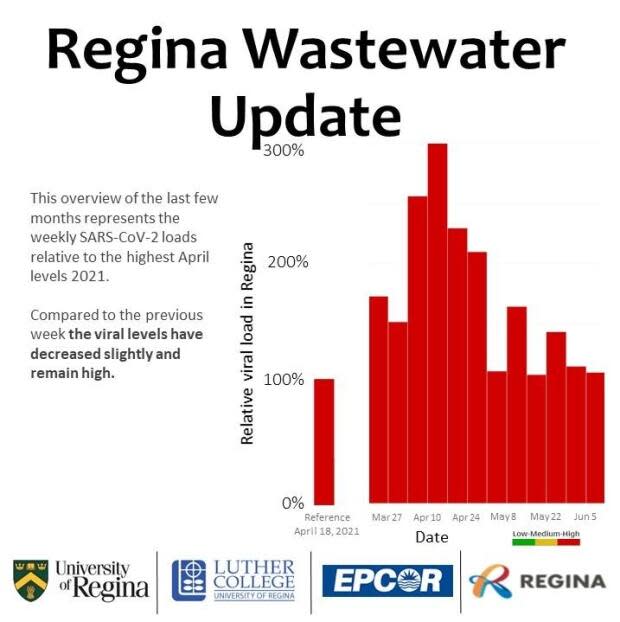Citing decreasing trend of infection, Sask. shifting to monthly COVID-19 reports

Saskatchewan is moving to monthly reporting of COVID-19 data from the currently weekly report beginning next week in response to a decreasing trend of COVID-19 in the province, the provincial Ministry of Health announced Thursday.
Saskatchewan will post a three-week report on July 21, followed by a report outlining COVID-19 in the province for the following month on Aug. 18.
It's also ending the news release that accompanied the weekly reports.
"Saskatchewan residents should continue to do their own personal risk assessment over the summer," chief medical health officer Dr. Saqib Shahab said in a news release Thursday, adding that people should consider using a mask and spending time outdoors.
"We will continue to ensure that people have access to information on a monthly basis, through detailed public health analysis, and more frequent reporting if concerning trends emerge."
The province is reporting 157 patients are hospitalized with COVID-19 with five people in intensive care.
It also reported 12 new deaths, three of which happened over the week and nine others in previous weeks.
There were 35 COVID-19 outbreaks in long-term care facilities and personal care homes, group homes and shelters between May 14 to June 18. Of those outbreaks, 15 are currently active, the province said.
New Omicron subvariants detected
While the Omicron BA.2 subvariant continues to dominate Saskatchewan's COVID-19 situation, accounting for more than 90 per cent of cases, the province says it has detected two new sublineages of Omicron, called BA. 4 and BA.5.
There were six cases detected from tests conducted at the end of May.
According to the provincial health ministry, the sublineages are more transmissible and more resistant to immunity from vaccine or prior infection, referred to as "vaccine escape."
However, the province says there's no evidence of increased severity.
Less COVID-19 being detected in wastewater
Both the University of Saskatchewan and University of Regina have been examining wastewater in Saskatchewan cities to detect COVID-19 in the community.
In Saskatoon, North Battleford and Prince Albert, the viral load of COVID-19 has decreased from last week, according to a Saturday report.
John Giesy, a toxicology professor at the University of Saskatchewan and one of the project's researchers, said in an email that all three cities remain within the low range of the COVID-19 viral load.
Despite that viral loads remain higher than many, or most, months prior to 2022 in those cities.
In Regina, University researchers reported on Sunday that viral levels have "decreased slightly" from the previous week "but remain high."

In a Facebook post, researchers show that while the levels are low compared to other recent weeks, they compare with some of the highest levels of the Alpha and Delta wave.


